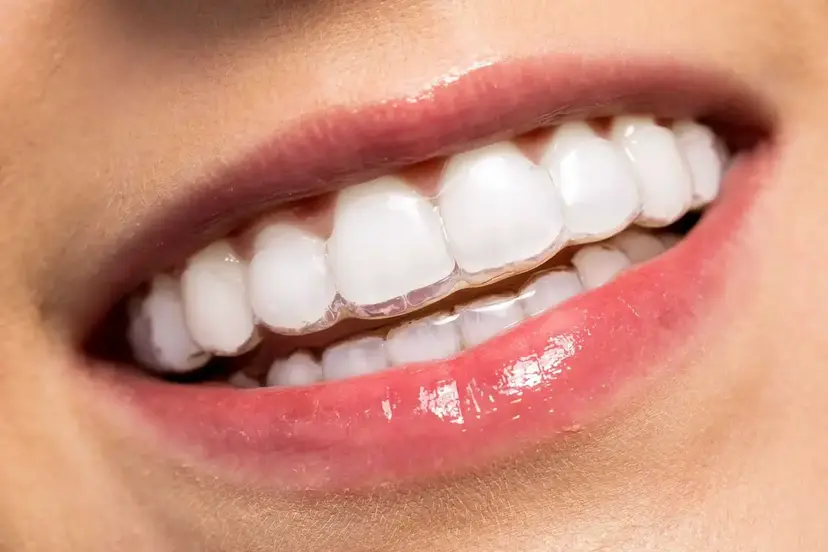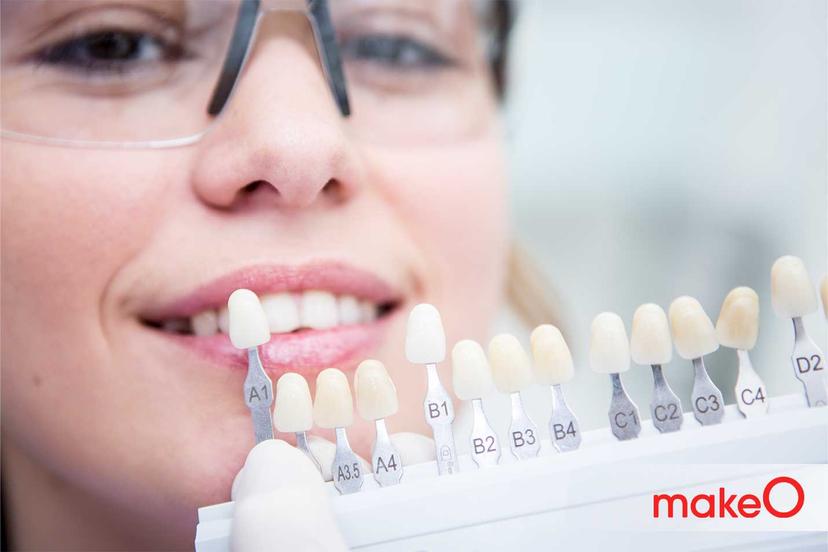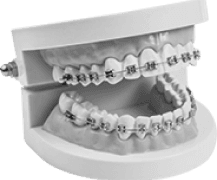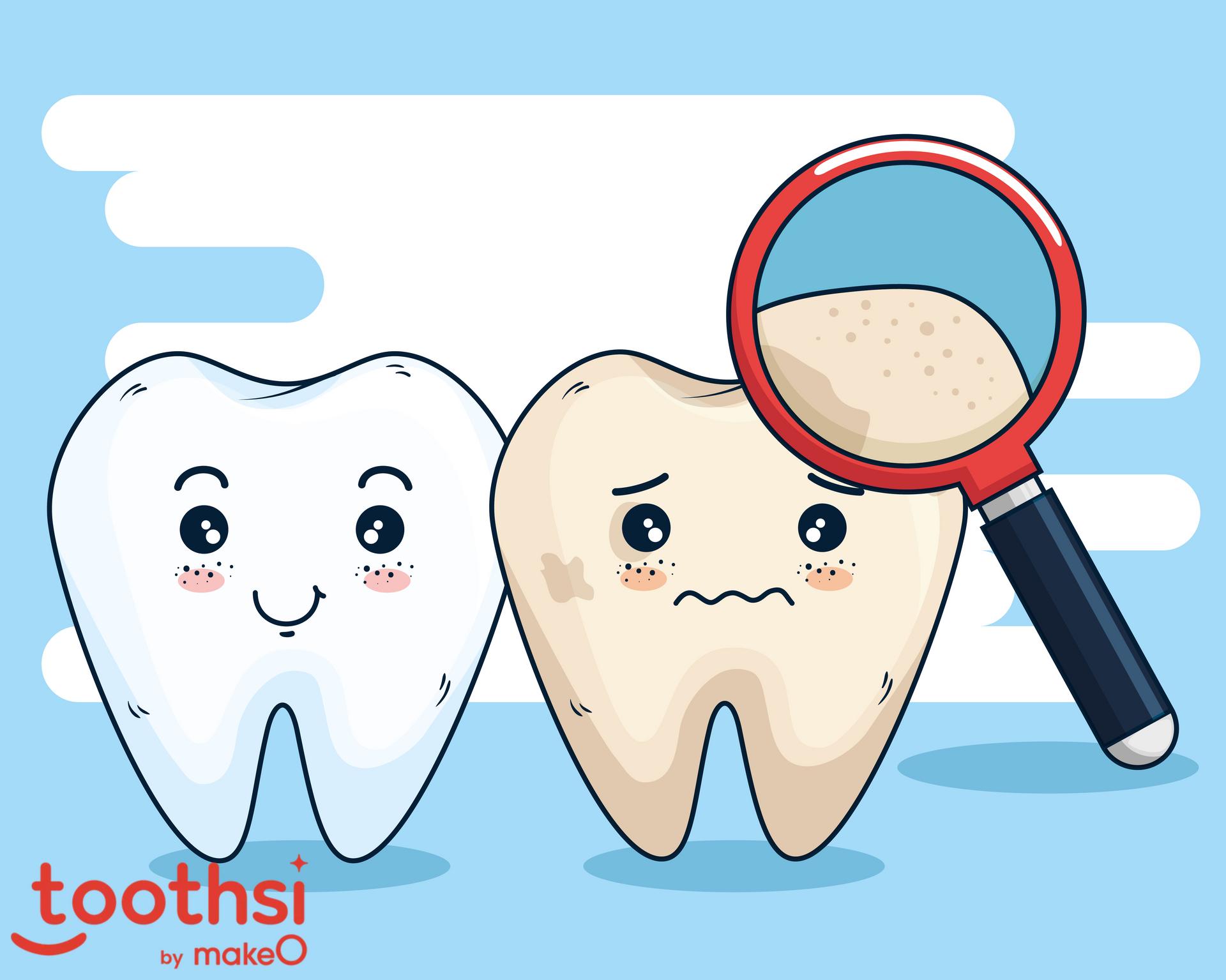MakeO blog
Introduction
Do you want to know the secret to keeping your teeth strong and healthy for a lifetime? The answer lies in protecting and strengthening your enamel, which is the hard outer layer. In fact, enamel is the toughest substance in your body. This layer protects your teeth from decay, sensitivity, and wear. Unfortunately, enamel can weaken over time due to factors like diet, poor oral care, and ageing, making your teeth more vulnerable to damage. While enamel cannot regenerate once it's lost, there are proven strategies to help preserve and protect it.
In this blog, we’ll discuss a few simple yet effective techniques you can incorporate into your daily routine to maintain strong teeth and a beautiful smile.
Top Dietary Tips and Natural Remedies for Strengthening Your Enamel
Your diet plays a crucial role in maintaining and protecting your teeth and gums. Although enamel is the hardest substance in the human body, it can still be susceptible to decay and erosion. Following these dietary tips can help keep your enamel strong:
Consume a Balanced Diet: A balanced, nutrient-rich diet overall supports your body's ability to keep enamel strong. Ensure you're getting enough protein, healthy fats, and a variety of vitamins and minerals to support your overall health and oral care.
Include Calcium-rich foods: Your teeth enamel is made up of calcium and phosphorus primarily. Calcium is essential for the strength and remineralisation of your teeth. Hence, incorporating foods like dairy products (milk, cheese, yoghurt), leafy greens (kale, spinach), fortified plant-based milks (almond, soy, oat milk) and tofu can be beneficial.
Include Phosphorus-rich foods: Another essential component of teeth enamel is phosphorus. Phosphorus works with calcium to help remineralise enamel and improve your tooth strength. Therefore, incorporating foods such as eggs, fish, seafood, seeds, nuts, lentils, lean meat, and beans could help to strengthen your enamel.
Consume Vitamin D: Vitamin D helps the body absorb calcium and phosphorus, making it crucial for enamel health. Foods high in vitamin D include fatty fish (salmon, mackerel, sardines), egg yolks, cereal, milk, and plant-based milk.
Avoid excessive consumption of acidic foods: Acidic foods such as citrus fruits (oranges, grapefruits, lemons), berries (strawberries, blueberries, raspberries), bell peppers, broccoli, kiwi, and tomatoes are high in vitamin C. While studies have shown small amounts of Vitamin C to help with gum health and gum inflammation (gingivitis), excessive consumption of Vitamin C can lead to significant tooth wear. Excessive vitamin C, particularly in the form of chewable tablets, can erode teeth by weakening your teeth enamel due to prolonged acid exposure, increasing the risk of dental sensitivity and cavities. Hence, it is recommended to consume these foods in moderation.
Limit Sugary and Acidic Foods: Excess sugar can promote the growth of harmful bacteria in the mouth, leading to enamel erosion and cavities. It is recommended to avoid sugary snacks and beverages, carbonated drinks, coffee, wine as these substances may lead to weakening of your enamel.
Incorporate Green Tea: Green tea helps reduce harmful bacteria in the mouth, reduces plaque buildup, protects enamel, and can also help to remineralise enamel.
Chew Sugar-Free Gum: Chewing sugar-free gum, especially ones containing xylitol, can stimulate saliva production, which helps to neutralise acids in the mouth and remineralise enamel.
Consuming Fluoride-containing foods: Eating foods and drinking water containing fluoride can strengthen your teeth enamel by protecting it from decay. Fluoride helps to prevent erosion of your teeth.
Stay Hydrated: Water helps wash away food particles and bacteria that can lead to enamel erosion. It also helps maintain saliva production, which protects your teeth from acidity and dry mouth.
By focusing on a diet rich in these nutrients and avoiding enamel-damaging foods and habits, you can significantly strengthen and protect your enamel over time.
Effective Oral Hygiene Practices to Protect Enamel
Preserving your enamel is essential for maintaining overall dental health. Here are some effective oral care tips to help protect and preserve your enamel:
Use soft-bristled toothbrush: A soft-bristled toothbrush helps clean teeth without damaging the enamel. Gentle brushing is recommended as brushing too aggressively can lead to enamel wear.
Use fluoridated toothpaste: The use of fluoride for teeth helps to strengthen enamel and make it more resistant to decay. Many toothpaste brands contain fluoride, which helps remineralise weakened enamel.
Consider teeth straightening: Misaligned teeth can make it harder to clean effectively, leading to enamel wear. Getting teeth straightening can improve both dental hygiene and overall enamel health.
Regular check-ups: Regular dental visits allow your dentist to detect early signs of enamel erosion, cavities, infected gums (gingivitis) or other issues. Professional treatments to strengthen your enamel can also be helpful.
Do not brush immediately after eating: After eating acidic foods or drinks, your enamel is temporarily softened, and brushing too soon can contribute to enamel erosion. Hence, if you have eaten something acidic, it is recommended to wait for some time before brushing your teeth to avoid further enamel wear.
Incorporating these practices, can help protect your enamel and preserve its strength for a longer time.
Lifestyle Changes to Support Enamel Strength
Supporting enamel strength through natural remedies and lifestyle changes is a great way to maintain optimal oral health and hygiene. Certain natural remedies and lifestyle changes such as those given below, can help protect and strengthen your enamel.
Fluoride: Using fluoride containing toothpaste helps strengthen the enamel and prevent decay. You can also discuss with your dentist about the need for a professional topical fluoride application.
Avoid snacking frequently: Constant snacking can keep your teeth in a perpetual state of acid exposure. Its best to avoid eating in between meals to keep your teeth healthy.
Avoid tobacco chewing: Tobacco contains harmful chemicals that can weaken your teeth and can lead to gum disease and dental cavity. By refraining from chewing tobacco, you help protect your teeth from decay, staining, and damage, promoting healthier enamel.
Correction of Adverse Habits: Bruxism or habitual clenching of teeth can negatively impact enamel by causing excessive wear and can erode teeth, making it more susceptible to decay and damage. Using a dental night guard and managing stress can help protect enamel from the harmful effects of clenching. Nail Biting, which involves biting or chewing on fingernails, can cause excessive wear on teeth and can lead to damage of your teeth enamel.
Supporting enamel health requires a combination of proper oral care, diet, hydration, and habit control that promote enamel remineralisation and protection. Following these practices can help maintain a healthy enamel and prevent tooth damage.
Conclusion
Strengthening your teeth enamel is crucial for maintaining long-term dental health and preventing tooth decay and sensitivity. By adopting a combination of effective strategies, such as practising good oral hygiene, using fluoride toothpaste, avoiding acidic foods and drinks, staying hydrated, and getting regular dental checkups, you can protect and preserve your enamel. Additionally, incorporating enamel-strengthening products like fluoride mouthwashes and seeking professional treatments, when necessary, can provide further benefits. With consistent care and mindful habits, you can preserve the strength of your enamel and ensure a healthier smile for years to come.
FAQs
What is enamel? Enamel is the hard, outermost layer of a tooth, composed mostly of mineralized calcium and phosphate. It is the strongest tissue in the human body, protecting teeth from decay and physical wear.
How to fix tooth enamel? To fix tooth enamel, you must maintain good oral hygiene with fluoride toothpaste and regular brushing. Avoid acidic foods and drinks and use a straw for beverages that can erode enamel. Consider treatments like fluoride varnishes or remineralising toothpaste.
Can teeth enamel be restored? Teeth enamel cannot be fully restored once lost or damaged. Unlike other tissues in the body, enamel does not regenerate and hence, cannot be restored.
How to increase enamel on teeth? Enamel cannot be restored, however, there are ways to help remineralise teeth and strengthen the remaining enamel, by practicing good oral hygiene, using fluoride toothpaste, and avoiding acidic foods and drinks. Drinking plenty of water also helps neutralize acids in the mouth. Regular dental check-ups can detect enamel erosion early.
How to naturally restore enamel? Enamel cannot regenerate, but you can help protect it by using fluoride toothpaste, eating enamel strengthening foods (like calcium, phosphorus, vitamin D), and avoiding excessive consumption of vitamin C rich foods and acidic or sugary foods. Proper oral hygiene, hydration, and regular dental visits also help preserve enamel. Chewing sugar-free gum can boost saliva production, thereby helping in remineralising teeth.
What is synthetic enamel? Synthetic enamel is a type of paint or coating that is designed to provide a hard, glossy finish. It is typically made from a combination of synthetic resins (like alkyd, epoxy, or polyurethane) and pigments, solvents, and other additives.
What is synthetic enamel paint used for? These synthetic enamel paint resins are chemically engineered to create a durable and resistant surface once the paint has dried or cured.
Is enamel a bone? No, enamel is not a bone. Although both enamel and bone are hard tissues, enamel is the hard, outer layer of your teeth and is made mostly of a mineral called hydroxyapatite, which gives it its strength and durability. It is the hardest substance in the human body, even tougher than your bones, but cannot be regenerated once damaged.
related categories
Related articles

Types of Braces: Removable vs Fixed Braces, Which is Right For You?

This Diwali, Smile Bright With makeO Teeth Whitening Kit

Dr. Pravin Shetty: Pioneer in Lingual Orthodontics & Innovative Smile Solutions
How do I Know I’m the Right Candidate for makeO toothsi Teeth Aligners?

